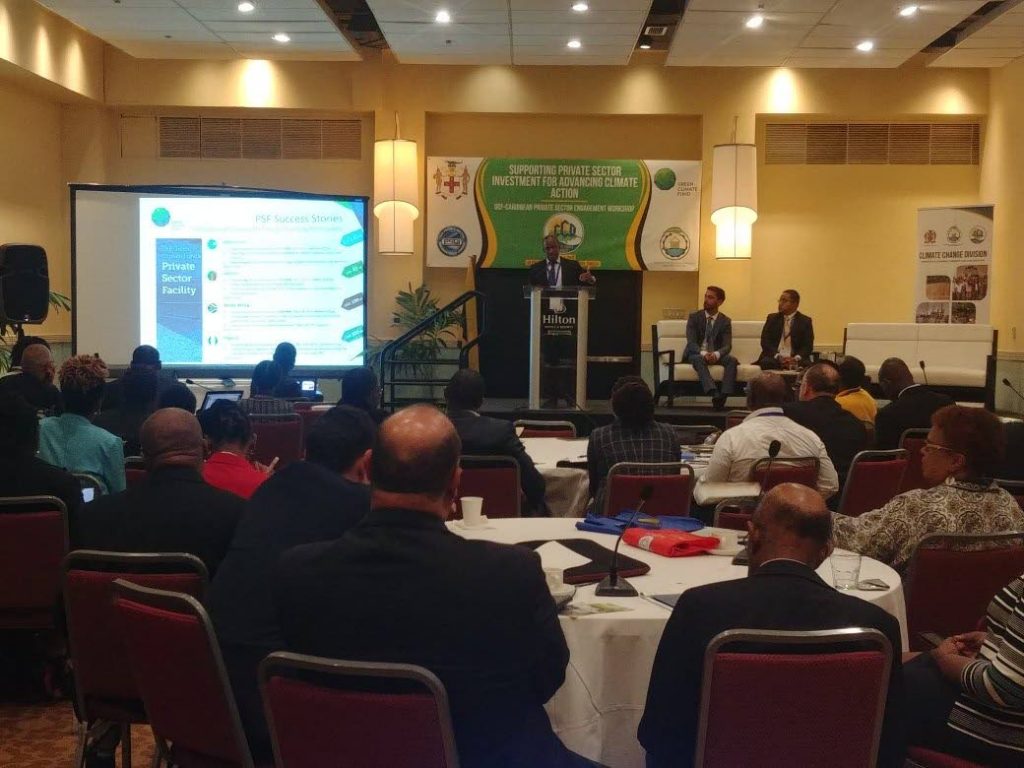MSMEs key to driving climate action in Caribbean

Medium, small and microenterprises (MSMEs) comprise the majority of businesses in the region and must be recognised as key pathways towards achieving climate resilient, inclusive and environmentally sustainable economies in the Caribbean. This was one of the key priorities identified by government, private sector and civil society organisations, including the Caribbean Natural Resources Institute (Canari), at the Green Climate Fund (GCF) Caribbean Private Sector Engagement Workshop from April 2-4, in Montego Bay, Jamaica.
The workshop explored mobilising private sector investment for climate action in the Caribbean and introduced participants to the GCF Private Sector Facility, as part of Jamaica’s GCF Readiness and Preparatory Support grant – Mobilising private sector support for low carbon and climate resilient development in Jamaica and other Caricom States. The workshop was attended by over 90 people from national designated authorities (NDA), accredited entities, large and small private sector organisations (national development banks, credit unions, insurance companies) and private sector umbrella groups in the Caribbean.
Canari reminded meeting participants on the need to reform climate finance to increase MSME participation and investment, and enhance climate change adaptation and mitigation in the Caribbean. Canari noted the issue of scale as a major limiting factor for MSMEs in the Caribbean and called for strategies for MSMEs to invest in new business opportunities and commercialise climate-friendly products and services, especially in priority sectors. Partnerships between private sector and public sector entities were also noted as an important strategy to mobilise private sector participation in the Caribbean and to access further climate financing such as from the GCF.

Private sector participants recognised the need for more accessible and relevant information sharing and tools for identifying climate risks. Opportunities for investing in climate action at the firm level to better incorporate climate change in their business planning and decision-making processes. Canari highlighted that it has developed and tested a "climate proofing" methodology, which is based on value chain analysis, whereby MSMEs can understand climate risks to their businesses and identify strategies to build their climate resilience.
Una-May Gordon, director of the Climate Change Division, Ministry of Economic Growth and Job Creation in Jamaica and the country’s NDA recognised the importance of MSMEs in a Caribbean response to climate change. Gordon noted, “We need an empowered private sector and civil society in the Caribbean, including MSMEs, in order to undertake collective action and ramp up ambition on climate change in the region while strategically taking advantage of the climate finance available such as through the GCF.”
Canari expressed its willingness to working in partnership with Caribbean governments, regional agencies, international partners and other stakeholders to facilitate discussion and develop recommendations for effective participation and leadership of MSMEs on climate action towards climate resilient, inclusive and environmentally sustainable economies in the Caribbean.


Comments
"MSMEs key to driving climate action in Caribbean"